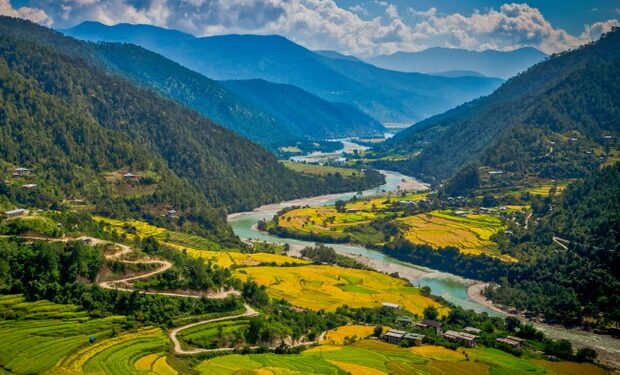Bhutan’s prime minister has reaffirmed the country’s commitment to remaining the world’s first carbon-negative nation, emphasising that environmental stewardship is inseparable from social progress and national wellbeing. In an interview marking a new phase of climate and development planning, the prime minister said Bhutan’s priorities continue to be guided by its philosophy of Gross National Happiness, placing human welfare, environmental protection, and cultural preservation above purely economic measures. The renewed stance comes as global climate negotiations intensify and pressure mounts on larger emitters to accelerate their transition.
A development model built on conservation and community
Bhutan’s carbon-negative status is rooted in its vast forest cover, which absorbs more carbon dioxide than the country emits. The constitution mandates that at least 60 per cent of the nation’s land remain under forest, a target consistently exceeded. The prime minister stressed that this framework is not merely environmental policy but a guiding principle for national planning. Protecting ecosystems, he argued, safeguards livelihoods, food security, and cultural identity in a country where mountain communities rely closely on natural resources.
Balancing modernisation with climate responsibility
Despite its small population and limited industrial footprint, Bhutan continues to face challenges associated with climate change, including glacial melt, landslides, and shifting weather patterns that affect agriculture. The government is pursuing carefully managed development, investing in renewable energy, digital connectivity, and sustainable tourism. According to the prime minister, the goal is to improve living standards without compromising the environmental integrity that underpins the country’s stability.
Hydropower as a cornerstone of sustainable growth
Hydropower remains Bhutan’s greatest renewable asset, supplying clean electricity domestically and providing export revenues through regional energy partnerships. The prime minister said that future hydropower projects will be designed with stricter environmental safeguards and climate-resilience measures, reflecting lessons from recent extreme-weather events. The government is also expanding investment in small-scale solar and biogas initiatives to strengthen energy security in rural areas.
Wellbeing at the centre of national policy
The prime minister reaffirmed that Bhutan’s development choices are anchored in promoting social harmony, equitable growth, and cultural continuity. He argued that environmental protection cannot be separated from broader human welfare, especially in a country where traditional lifestyles remain closely connected to land, rivers, and forests. Policies under review include new support for rural healthcare, improved education access in remote areas, and enhanced youth employment programmes.
A message to the global community
As international climate commitments fall short of global targets, Bhutan’s leadership continues to highlight the value of long-term stewardship over short-term gains. The prime minister said the country offers a working example of how environmental responsibility can reinforce economic resilience rather than impede it. While recognising Bhutan’s unique circumstances, he urged larger economies to adopt more integrated approaches that link climate action with wellbeing and social cohesion.
Newshub Editorial in Asia – 27 November 2025



Recent Comments